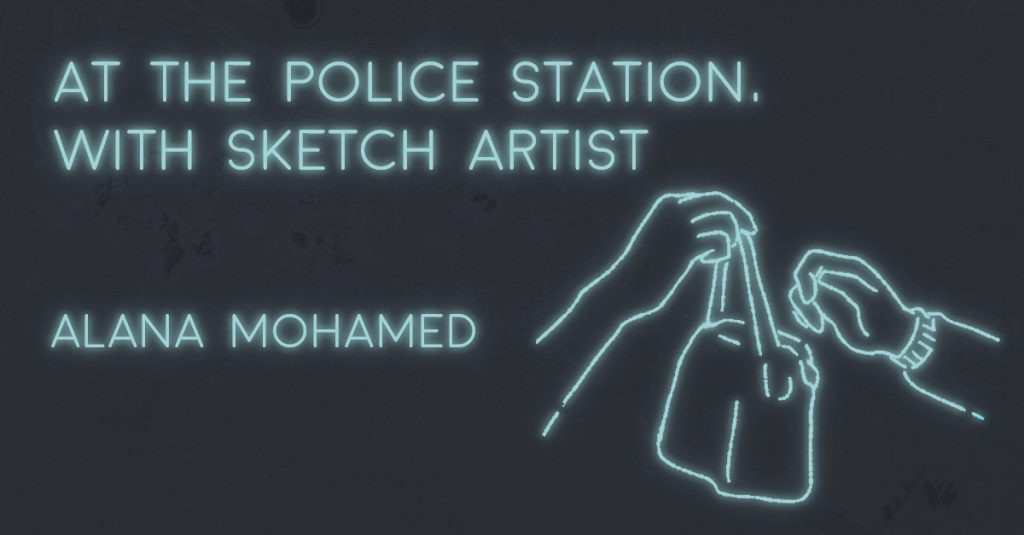The most startling thing about him was the realization that he must have been beautiful when he was younger. I like to look into people’s faces and imagine them other ways: older, younger, dying, terrified, on the brink of extreme cruelty. This man did not look capable of cruelty, though it was dark out and difficult to tell. He seemed like a good man who had grown up and seen life turn in on itself and now he was in a hard way, with such a striking face and such deep lines.
It was a foggy Tuesday and I was exhausted from a hike through four supermarkets to find limes. It was unusual of me to be out so late at night and to stare so brazenly at a man. I’m embarrassed about it now.
He carried stress in his brow, I remember. It furrowed when I didn’t immediately comply. I couldn’t hear him at first. He was a frantic whisperer and I was at a loss to make him stop. He got close enough to reach for my bag, a vintage store relic I bought to be interesting, and I finally understood. I imagined his whole face smoothing out at the sight of hungry children or a pregnant wife, and I decided to give him everything.
I shoved my bag in his hands along with: my wallet, $73 in cash, and two credit cards I never use; the keys to my apartment; a small can of pepper spray; three overnight pads I carried “just in case;” a water bottle with no water; half a package of Tums; the three limes I had finally claimed. “For gimlets,” I explained when he looked up.
“Funny lady,” he whispered. He thought I was joking. I liked that.
He didn’t like it when I took off my blouse. Instead, with alarm: “Look funny lady, I don’t want any trouble.”
I told him I wasn’t trying to give him any trouble, just the clothes off my back.
“That always spells trouble,” he said, shaking his head. It’s true, I carry some baggage from past relationships, but he didn’t have to assume it was like that.
I said, “You’re being very rude and I didn’t take you for a rude guy.”
His eyes widened—they had been narrowed the whole time and I’d assumed he had a natural Clint Eastwood squint, but when he looked at me, years melted off his face. I could see that underneath he was like a Disney Prince, handsome and prone to severe errors in judgment. “I don’t think you’re a rude guy,” I amended quickly.
“I’m not a rude guy, I’m a stranger trying to rob you,” he reminded me gently. He stood there with my purse, I with my shirt off.
“I just wanted to give you something. This is a very nice blouse.” It was white silk with puffed sleeves, my mother’s from her secretary days. I thought it would suit his color, or maybe he’d enjoy it brushing against his skin the way I had as a child.
The creased brow deepened. “I don’t want you to give me anything, I need to take something from you,” he said. I couldn’t imagine caring about the difference between the two.
“I thought what you needed was help,” I told him.
“I think you need help.” He said, reaching out with his hands.
I looked at his peeling fingers and thought, “Yes, I do.” I opened my arms wide, he hooked the purse strap on my outstretched hand.
“No, no, I insist,” I tried to return the stinging rejection, but he was already backing away. I shrugged my top on intending to follow him. When I looked up he was gone and I was lost in the fog.
I keep failing to recall his face, though I can’t stop thinking about it: old and wrinkled, young and wide-eyed at the same time. Instead, I can only see it buried in the puffed sleeve of my mother’s favorite blouse, a phantom that will not shake loose. Surely this is some kind of crime.

